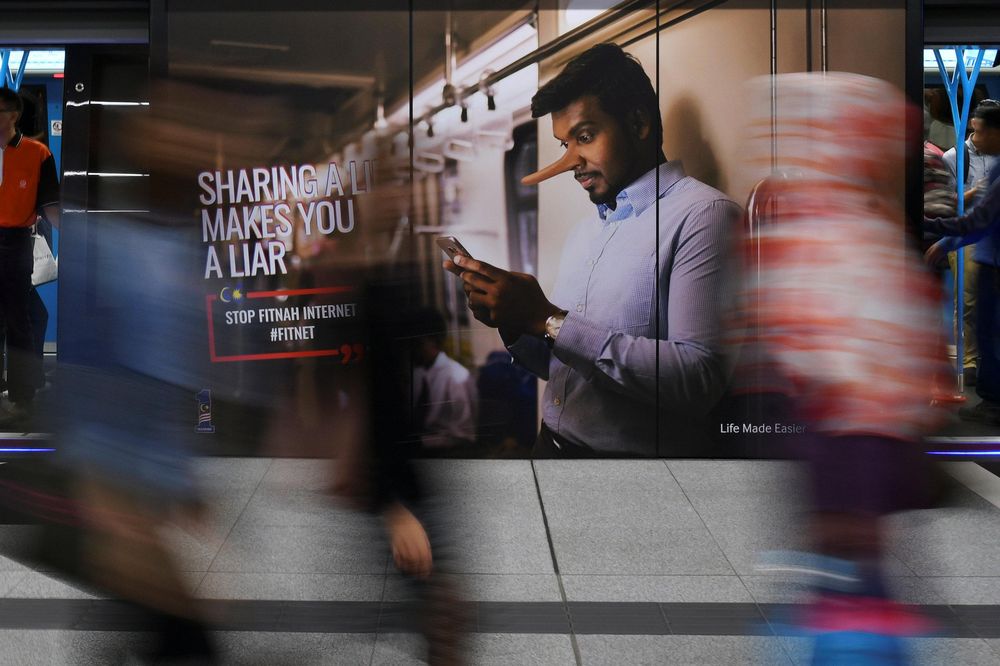KUALA LUMPUR, April 19 — While universally agreeing that the sharing of fake news must be discouraged, human rights groups say that the Malaysian government should first ensure that credible information on Covid-19 is readily available and accessible.
In this context, information on Covid-19 is considered scarce and not actively provided by the government, said Nalini Elumalai, programme officer of international human rights organisation, Article 19 (Malaysia chapter).
“The government is right to be concerned about false information and myths circulating online and should be developing effective policies to counter misinformation.
“To start, the government should ensure transparency in its own operations and proactively provide truthful and authoritative information related to the Covid-19 pandemic,” she said when contacted by Malay Mail.
Nalini pointed out that governments around the world are obligated under human rights law to share government-held data and ensure the public has access to information.
“The right to freedom of expression and information includes the right to seek, receive and impart information and ideas of all kinds through any media.
“It applies to everyone, everywhere. The government must make a special effort to ensure access to information about Covid-19 by parts of society that have limited access to the internet,” she said.
Nalini was responding to Defence Minister Datuk Seri Ismail Sabri Yaakob’s recent warning that those who delete a fake news post related to Covid-19 on social media can still be hauled up for investigations.
“The defence minister’s recent threats to investigate and prosecute those posting false information, however, screams of governmental overreach.
“The fact that he suggested individuals could face criminal penalties even if they have taken down their posts is clear evidence that the government’s response is not proportionate to the potential harm done by those making online posts about the pandemic,” she said.
She added that this approach is counterproductive and could have a chilling effect on the sharing of any information, true or false.
“Investigations against individuals that have already taken down their posts seem to be an abuse of authority,” she said.
Nalini also reminded that if legitimate concerns arise in relation to misinformation and disinformation, the government still must comply with the requirements of legality, legitimacy, necessity and proportionality.
“Criminal measures and custodial sentences should be a measure of last resort when it comes to countering misinformation,” she said.
Agreeing with this sentiment, Asian Forum for Human Rights and Development (Forum-Asia) executive director, Shamini Darshni Kaliemuthu, said to combat fake news effectively, the government must ensure that it is providing accurate, timely and comprehensive information on the Covid-19 situation and disseminating this widely.
Shamini added that, while it is unclear which law the Malaysian government is using to investigate and charge individuals who are allegedly spreading fake news, it remains worrying that the government is diverting its attention from dealing with a global pandemic.
“Investigating individuals for sharing a piece of news that may be defined as ‘fake’ is a waste of government resources.
“The government should look to the positive Covid-19 responses in Taiwan, where the Taiwanese government ensures transparency of information by continuously broadcasting and updating comprehensive information about the virus, including how it spreads and how to prevent it.
“As a direct result of this, Forum-Asia found that Taiwan managed to reduce fear and speculation by capacitating its people about the knowledge related to coronavirus,” Shamini said when contacted.
Forum-Asia, she added, calls on the government to respect fundamental freedoms, including the freedom of expression and the right to information, and to repeal restrictions that prevent Malaysians from exercising these rights while respecting the right to privacy.
Forum-Asia is a Bangkok-based regional network of 81 members in 21 Asian countries, and has consultative status with the United Nations Economic and Social Council, and a consultative relationship with the Asean Intergovernmental Commission on Human Rights.
Also weighing in is human rights lawyer Fadiah Nawar Fikir who said the government should refrain from taking such “primitive” actions.
“They should instead educate the public about fake news.
“At the moment, the public is frustrated that they are not given access to information that concerns them.
“Sharing fake news could be a reflection of how the public is looking for other means to source for information and verify the validity of the information at hand,” said Fadiah when contacted.
She added that the reminder given by the defence minister is a sign that the government might be using it as an excuse to intimidate the public.
“If the government had in the first place been more transparent with information, the public would not have resorted to unverified information.
“Punishing them for doing so would only aggravate the situation further and does not prevent the public from sharing false information,” she said.
Ismail Sabri had on Monday said that 271 investigation papers have been opened against individuals for allegedly spreading fake news on the Covid-19 outbreak, and warned of severe repercussions for those who commit such deeds.
He also reportedly said that the authorities can still carry on with their investigations even if the postings have been deleted.



















